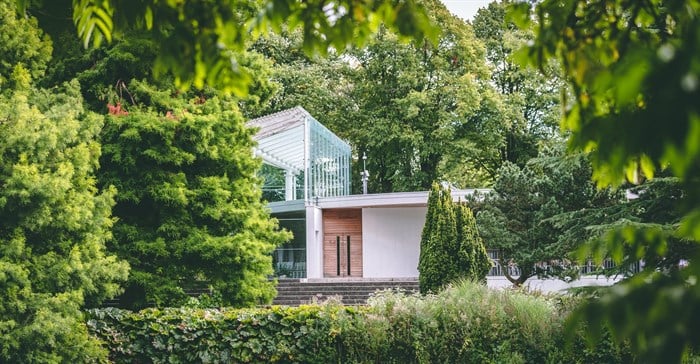
Subscribe & Follow
Absa helps real estate sector lead SA towards a sustainable future

In 2015, the Green Building Council of South Africa (GBCSA) issued 158 green building certifications. As 2023 draws to a close, this figure has surpassed 1,000 certifications. The total area of green buildings certified by the GBCSA is approximately 14.3 million m2, equivalent to 2043 rugby fields. These buildings result in an annual energy saving of 1,4GWh (enough to power 99,306 households) and conserve 1,3 billion litres of water (sufficient to meet the drinking water needs of over 1,8 million people for a year).
The increasing uptake of green buildings signifies a substantial shift in the industry’s approach towards responsible resource use and environmentally friendly development. Besides the environmental advantages, green buildings also offer appealing financial incentives through inherent cost efficiencies in sustainable design and operation.
Investors aligning their portfolios with sustainable initiatives are increasingly attracted to the lower building maintenance costs, reduced electricity and water expenditure, and improved occupancy rates.
The journey towards a sustainable South Africa also necessitates a concentrated focus on enhancing the provision of affordable housing. While the real estate sector is making commendable strides in this area, they are confronted with a range of macro and microeconomic challenges, including a constrained economy, an ongoing energy crisis, rising construction costs, and increasing interest rates.
Addressing South Africa’s housing needs requires investment, commitment, and a determination to succeed.
Funding solutions
Absa is championing the cause for good, by offering innovative and beneficial funding solutions to industry participants who can demonstrate their positive environmental and social impact.
One such solution is the recently concluded R4,5bn loan with the International Finance Corporation (IFC) aimed at supporting green buildings in the country. Through this loan, the IFC has made a Performance-Based Incentive (PBI) available to eligible Absa-financed green building transactions.
Funded by the Market Accelerator for Green Construction (MAGC) programme of the UK government’s Department of Energy Security and Net Zero, the PBI will help catalyse the adoption of green buildings by providing a rebate payment for eligible developers and homeowners to partly offset the incremental greening and certification costs tied to green building construction.
The incentive is available in South Africa and across all product types (residential, retail, office and industrial) subject to certain price thresholds with the majority of the overall MAGC PBI being allocated to affordable housing transactions with an average selling price point of less than R1,4m and an average rental per month of less than R8,300.
“IFC is committed to expanding access to green and sustainable affordable housing in South Africa to address climate change and protect the environment " said Kalina Miller, FIG manager for South Africa.
"Our partnership with ABSA will contribute to greater climate change resilience in the country by supporting climate-smart housing solutions, particularly, in the affordable housing segment."
Facilitate positive impact
“Our partnership with the IFC facilitates positive environmental and social impact in South Africa, through the delivery of environmentally responsible properties with a specific focus on increasing the delivery of quality well-located green affordable homes.” said Amelia Dieperink, head of affordable housing, commercial property finance (CPF) at Absa.
“GBCSA is delighted about the IFC’s loan to Absa that is linked to environmental impacts. It is exactly these types of partnerships and financial decision making that we need to drive change at scale, and really divert our national carbon trajectory” says Lisa Reynolds, CEO of the GBCSA.
Additionally, these funding solutions extend to socially sustainable housing projects that cater to lower income groups. Because affordability is such an important factor for a developing country, these financial tools present a promising approach to tackle the housing challenge and advance sustainable living.
As the need for climate change action and the demand for affordable housing intensifies, proactive involvement by financial institutions and industry collaboration remains paramount to achieving a more sustainable and inclusive future.
Related
Municipalities enter the climate crisis chat at built environment indaba Lindsey Schutters 9 Dec 2024 Hotel Verde secures net zero waste certification 12 Nov 2024 Champions of sustainability recognised with GBCSA Leadership Awards 2024 7 Nov 2024 Zero Positive: #GBCSA2024 champions climate-integrated construction solutions Katja Hamilton 6 Nov 2024 UCT’s d-school Afrika reaffirms leadership with second 6-Star Green Star ratingHasso Plattner d-school Afrika 15 Oct 2024 Top financial management tips for women-owned businessesBusiness Partners Limited 16 Aug 2024 Growthpoint begins construction on CT green office refit for Ninety OneCatchwords 26 Jul 2024 MSCI South Africa Green Annual Property Index 2023Catchwords 4 Jul 2024








